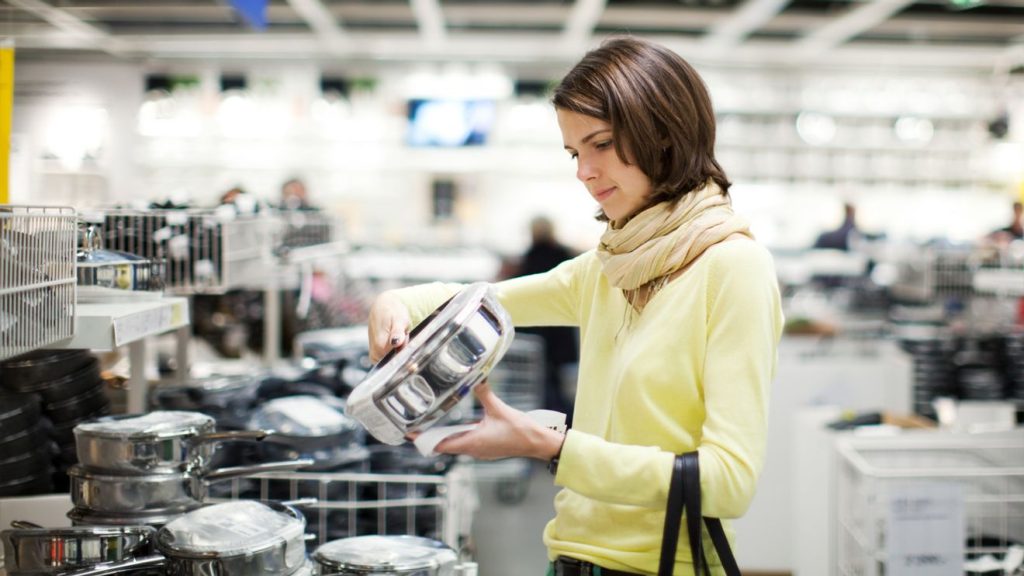No, you don’t need to spend $4,500 on that 157-piece Le Creuset cookware set from Costco
COST,
-0.43%.
The pricey package has become an everyone-is-talking-about-it sensation, owing largely to social media. A post about the set on X, the platform formerly known as Twitter, that has now been viewed some 21 million times seems to have been the initial source of the buzz. It noted that the Costco offering has “probably every kitchen item you will ever need.”
In turn, that post generated more social-media chatter, along with articles in publications including the New York Post and the Delish website.
Now the set is apparently so popular, you can’t even get it. In several parts of the country, the Costco site doesn’t even list it as being available. MarketWatch reached out to the retailer for details but did not receive an immediate response.
Perhaps it’s just as well that home cooks won’t be tempted to spend all that money. When MarketWatch spoke with several prominent New York chefs and restaurateurs, they all said the set was overkill, even if it represented a savings compared with buying the items individually.
If anything, these culinary pros noted that purchasing so many pieces not only poses a storage issue, but it can also create confusion in the kitchen, especially for the home cook.
“I don’t even have one-tenth of that set,” says veteran chef Konstantinos Kvasilava, who works at Kyma, a high-end Greek restaurant in New York, and who previously was at Geranium, a Michelin-starred establishment in Copenhagen.
So what are the items you should buy for your kitchen? Here are five rules chefs say you should keep in mind.
Stick with the basics
The Costco Le Creuset set includes several pots and pans, plus bakeware, dinnerware and more. Let’s presume you already have some plates and utensils in your kitchen. Beyond that, chefs generally recommend a small number of pieces — think in terms of as few as four and as many as 10, says Franklin Becker, chef and owner of the Press Club Grill in New York. His must-have list includes 8-inch and 10-inch nonstick pans, a high-sided stainless-steel sauté pan and 1-quart, 4-quart and 8-quart pots. “Those are the essentials,” says Becker, explaining that such items will cover your needs depending on what you’re cooking — the nonstick pans are great for eggs, he notes — and how many people you’re cooking for. The 8-quart pot will work if you’re entertaining a crowd and need to make a big dish.
Other chefs’ must-haves include a cast-iron pan, often a preferred method for cooking steaks; a casserole dish, which is good for casseroles, naturally; and a Dutch oven. It’s always best to think of items that can be used in multiple ways. Rose Noel, executive chef at New York’s Peak restaurant, likes a cast-iron pan, for example, because it can go into the oven and can also be used on an outdoor grill. “It carries everywhere,” she explains. And, she says, a decent-sized casserole dish can double as a roasting pan for, say, cooking a chicken.
Add extras, depending on what you eat
One you have those basics, look at your daily diet and buy items that fit your own needs. Simon Kim, proprietor of Coke Korean Steakhouse, which has locations in New York and Miami, says he doesn’t make eggs at home for breakfast, but he always makes smoothies, so a powerful blender is a must for him. And he eats a lot of rice, so he has a rice cooker, which he says is much better than an everyday pot when it comes to preparing that staple.
Buy quality
It’s always tempting to go the cheap route, but chefs say you’ll pay for it in the end by having cookware that doesn’t last as long and doesn’t cook as well. Becker notes that aluminum cookware, which typically costs less, should be avoided at, well, all costs.
In terms of brand preferences, chefs mention many higher-end names, such as T-fal , All-Clad and Le Creuset. And when it comes to that blender for his morning smoothies, Kim says he swears by his Vitamix.
Avoid sets
The problem with buying any cookware set, even one with as few as 10 pieces, is that it often means duplicating items you already have, chefs say. Plus it doesn’t allow you to mix and match brands and take advantage of the fact that certain brands may be better than others for certain items.
Noel suggests you purchase cookware for your kitchen the same way you purchase clothes for your wardrobe. “Buy pieces to fill in what you’re missing or need to update,” she says.
Take care of what you own
Even the best cookware won’t measure up if you don’t treat it properly. Becker says it’s important to wash pots and pans pretty much immediately after each use so that food and grease don’t harden and become difficult to remove. Also keep in mind what manufacturers suggest in terms of proper care: A cast-iron pan, for example, needs to be seasoned regularly with oil and shouldn’t be cleaned with anything too abrasive.
Now read: Americans are sick and tired of tipping. Here’s why we need to tip more — not less.
Read the full article here
